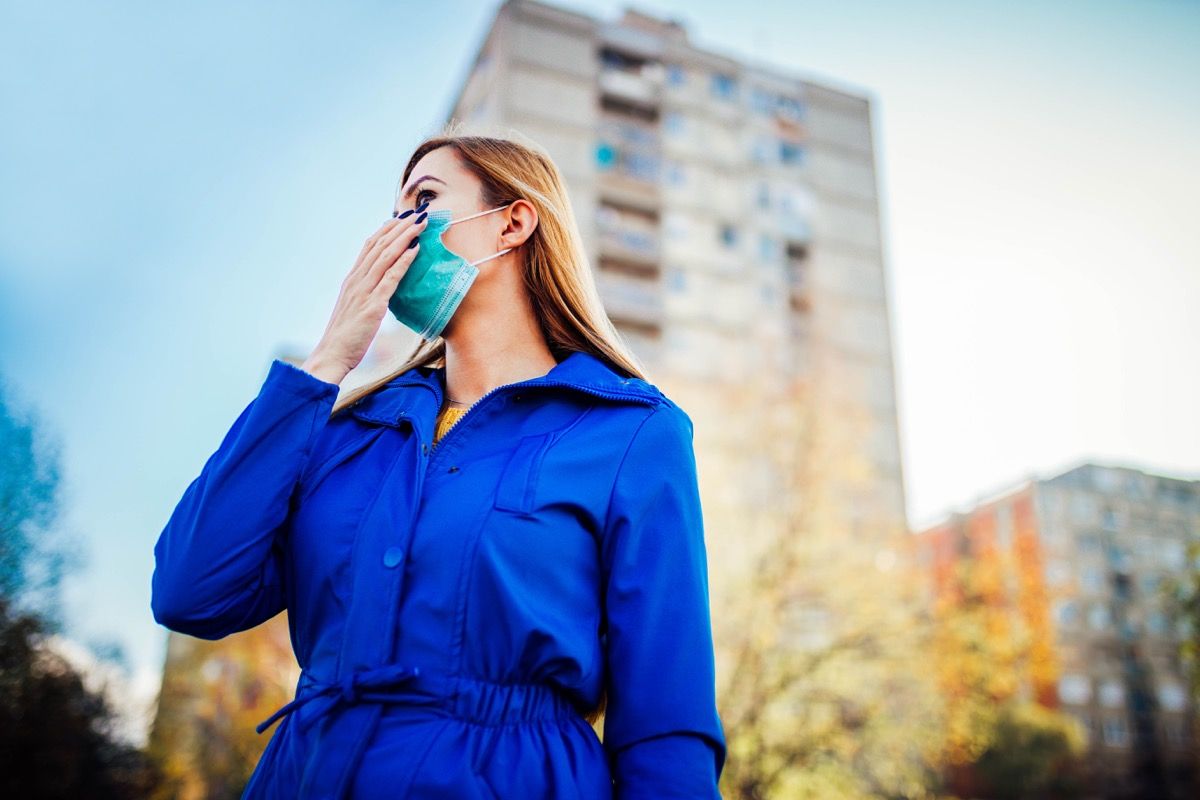In order to halt the spread of coronavirus completely, a vaccine would need to produce antibodies that stop the virus from replicating. “To prevent asymptomatic infection and transmission, you need what’s called sterilizing immunity,” Greg Poland, MD, director of the Mayo Clinic’s Vaccine Research Group, explained to USA Today. While it’s possible that one or more of the vaccines could produce sterilizing immunity, it currently remains unproven. As The New York Times reported in a Dec. 3 article, the lack of clarity surrounding sterilizing immunity means we’ll need to remain vigilant once a vaccine does arrive. “We don’t know yet if these vaccines simply prevent people from getting the symptoms of COVID or actually stop the spread of the virus from one person to the next,” The Times science writer Carl Zimmer explained. “They might, but we don’t know. So you do not want to be walking around feeling fine and breathing viruses all over people who haven’t gotten vaccinated yet, or people who can’t get vaccinated.” In other words, yes, it would be thrilling to rip the mask off once and for all just moments after your injection, but experts agree that the reality might look quite different. “While experts learn more about the protection that COVID-19 vaccines provide under real-life conditions, it will be important for everyone to continue using all the tools available to us to help stop this pandemic, like covering your mouth and nose with a mask, washing hands often, and staying at least 6 feet away from others,” the CDC warns on its website. Read on for more details about the vaccine, and for more on the face covering you shouldn’t wear, check out This Type of Face Mask Isn’t Protecting You From COVID, WHO Warns. Read the original article on Best Life. As much as we’d all love for life to return to normal the moment after we’re vaccinated, the reality is that both the Pfizer and Moderna vaccines require two shots, scheduled roughly one month apart. This means that even in an ideal world where a vaccine would provide maximal protection moments after a shot, you would still need to hang onto your mask for at least another 30 days after your first dose. And for more on what might protect you from the virus, know that If You Have This Common Condition, You Might Be Safe From COVID. While a second round of vaccination should ultimately lead to significant protection from COVID, experts warn that it will still take time for your body to reach maximal immunity after the second dose. According to the CDC, reaching these levels can take an additional few weeks. And for more up-to-date news on COVID and more, sign up for our daily newsletter.ae0fcc31ae342fd3a1346ebb1f342fcb If the vaccine you receive is between 90 and 95 percent effective, that means that there’s between a five and 10 percent chance that you will contract the virus despite vaccination. Given that the frontrunner vaccines have been found to lessen the severity of the virus in those few who do contract it, you may be more likely to become an asymptomatic carrier who passes the virus on to others. And for more on the latest COVID research, check out If You Have One of These Blood Types, You May Be Safe From COVID. In order for the U.S. to fully stamp out COVID-19 with herd immunity, we need 75 percent of the population to become vaccinated or produce natural antibodies to the virus. As of November, a Gallup poll showed that only 58 percent of Americans are prepared to take a vaccine once one becomes available. This could translate into additional precautions to protect those who won’t or can’t be vaccinated. And for more on how to stay safe from the virus, beware that Almost All COVID Transmission Is Happening in These 5 Places, Doctor Says.
